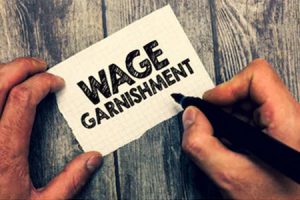Wage Garnishment And Unpaid Student Loans

Americans are carrying an unprecedented amount of student loan debt and unfortunately many former students are struggling to repay their education-related loans. As a result, creditors are seeking wage garnishment orders. Wage garnishment occurs when a court compels an employer to withhold a specified portion from a debtor employee’s paycheck until an outstanding debt is satisfied. While it is illegal for creditors to garnish all of your wages, having part of your wages withheld can greatly impact your standard of living. According to data released from the Federal Student Aid Office, between October 1st and December 31st of last year the Department of Education garnished more than $176 million in wages from student loan borrowers. This staggering figure seems to suggest that the new programs and policies available to federal student loan borrowers are not helping former students manage their loans as policy makers had hoped.
Options Available To Help Student Loan Borrowers Manage Their Payments
According to Market Watch, both the high levels of wage garnishments and defaults indicate that a decent number of student borrowers are struggling financially despite programs from the Obama administration aimed at making student debt more manageable. Market Watch examined two of these programs, income driven repayment plans and monthly payment caps, and analyzed why they may not be making the positive impact that they were intended to.
Income Driven Repayment Plans and Monthly Caps
In order to make it easier for student loan borrowers to make their monthly payments, policy makers allow borrowers to enroll in income driven repayment plans. The idea is that if the amount of your required monthly payment fluctuates in proportion with your income then your monthly payments will be manageable. Additionally, another policy that was recently implemented caps monthly payments at 10 percent of the borrower’s income. Market Watch reports that as of December 2015 almost 4.6 million student borrowers, a 48 percent increase from 2014, had enrolled in an income driven repayment plan. While these types of payment plans are undoubtedly becoming more popular, Market Watch suggests that many student borrowers may still be facing wage garnishments because they are not aware that they have the option of enrolling in an income driven plan. They also suggest that the private companies responsible for managing the repayment process may not be doing enough to inform their borrowers of the repayment options available to them.
Bankruptcy And Wage Garnishment
While filing for bankruptcy protection is not the right option for everyone who is struggling financially, it is important to note that that bankruptcy is often filed in response to wage garnishment as it immediately stops creditors from taking any further action against the borrower. However, if you wish to pursue this route it is very important to file for the type of bankruptcy that would be most advantageous given your financial situation. As selecting the appropriate form of bankruptcy can be complicated, it is always a good idea to consult with an experienced bankruptcy lawyer to discuss your debt relief options.
How Can We Help?
If a creditor is threatening to garnish your wages, contact the experienced Chicago wage garnishment lawyers at the Bentz Holguin Law Firm, LLC. Our lawyers will work with you and your creditors to ensure that the best possible resolution to your debt relief needs is achieved. Contact our office by calling 312-647-2116 or online and schedule a free consultation.


